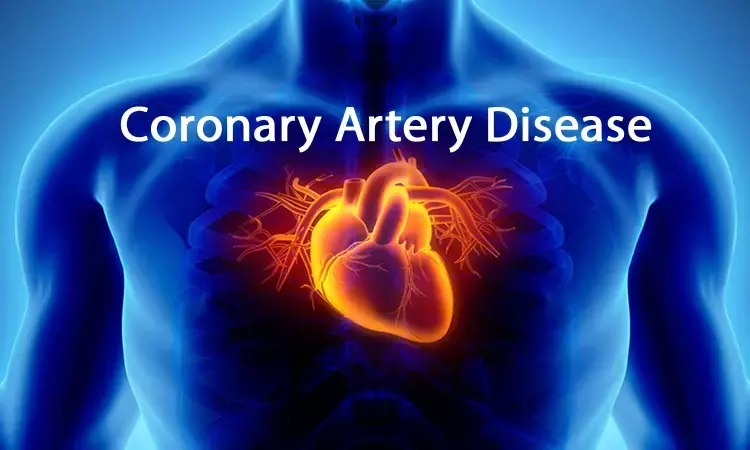- Home
- Medical news & Guidelines
- Anesthesiology
- Cardiology and CTVS
- Critical Care
- Dentistry
- Dermatology
- Diabetes and Endocrinology
- ENT
- Gastroenterology
- Medicine
- Nephrology
- Neurology
- Obstretics-Gynaecology
- Oncology
- Ophthalmology
- Orthopaedics
- Pediatrics-Neonatology
- Psychiatry
- Pulmonology
- Radiology
- Surgery
- Urology
- Laboratory Medicine
- Diet
- Nursing
- Paramedical
- Physiotherapy
- Health news
- Fact Check
- Bone Health Fact Check
- Brain Health Fact Check
- Cancer Related Fact Check
- Child Care Fact Check
- Dental and oral health fact check
- Diabetes and metabolic health fact check
- Diet and Nutrition Fact Check
- Eye and ENT Care Fact Check
- Fitness fact check
- Gut health fact check
- Heart health fact check
- Kidney health fact check
- Medical education fact check
- Men's health fact check
- Respiratory fact check
- Skin and hair care fact check
- Vaccine and Immunization fact check
- Women's health fact check
- AYUSH
- State News
- Andaman and Nicobar Islands
- Andhra Pradesh
- Arunachal Pradesh
- Assam
- Bihar
- Chandigarh
- Chattisgarh
- Dadra and Nagar Haveli
- Daman and Diu
- Delhi
- Goa
- Gujarat
- Haryana
- Himachal Pradesh
- Jammu & Kashmir
- Jharkhand
- Karnataka
- Kerala
- Ladakh
- Lakshadweep
- Madhya Pradesh
- Maharashtra
- Manipur
- Meghalaya
- Mizoram
- Nagaland
- Odisha
- Puducherry
- Punjab
- Rajasthan
- Sikkim
- Tamil Nadu
- Telangana
- Tripura
- Uttar Pradesh
- Uttrakhand
- West Bengal
- Medical Education
- Industry
CABG bests PCI in CAD patients with diabetes, study finds

A recent study by Valentino Bianco (D.O.,M.P.H.) et.al. has revealed that in patients with coronary artery disease and having diabetes mellitus as a co- morbidity, coronary artery bypass grafting (CABG) has relatively better results as compared to percutaneous coronary intervention (PCI).
In patients with diabetes, an early onset of atherosclerosis is commonly noted. It leads to an increased risk of progression to coronary arterial disease, researchers said.
This original study has recently been published in the journal of Seminars in Thoracic and Cardiovascular Surgery.
Over 25% of all patients who undergo multivessel revascularization have diabetes. A number of earlier studies have demonstrated that CABG should be the preferred strategy for multivessel revascularization in patients with diabetes. In this group, CABG leads to improved survival rates and a reduced risk of myocardial infarction and repeat revascularization compared with revascularization with PCI.
Coronary artery bypass graft surgery (CABG) remains the most common operation performed by cardiac surgeons today. From its infancy in the 1950s till today, CABG has undergone many developments both technically and clinically.
The study sample consisted of all revascularization procedures in patients with coronary artery disease and having diabetes mellitus from 2010-2018.After propensity matching at 1:1, 552 patients were considered in each cohort (CABG vs. PCI). Post operatively, 30-day, 1-year, and 5-year (median follow-up was 3.28 years) mortality rates of these patients were assessed as standards. The occurrence rates of major adverse cardiovascular and cerebrovascular events (MACCE) were noted in both the CABG and PCI groups .The data obtained was put to statistical analysis.(Multivariable analysis)
Results of the study revealed the followingfacts.
- The PCI cohort has shown relatively high mortality rates at 1-year (13.98% vs 7.53%; p=0.014) and 5-year (26.88% vs. 16.85%; p<0.004).
- Post operatively, readmission rates to hospitals in the PCI group were higher at 1-year (16.49% vs. 9.32%; p<0.0122) and 5-years (19.71% vs. 11.83%; p=0.011).
- Much more frequent occurrences of major adverse cardiovascular and cerebrovascular events (MACCE) in the PCI cohort (32.97% vs. 21.51%; p=0.002).
- The patients in the PCI group finally had to undergo revascularization at a significantly higher rate in comparison to the CABG group. (6.45% vs. 2.51%; p=0.024)
- Researchers also noted that time interval to the second surgical intervention i.e. repeat revascularization was significantly longer in the CABG cohort.
Previous studies for revascularization comparing PCI and CABG have not been able to provide a single solution for the entire spectrum of patients with stable CAD.
Researchers of the present study are of the opinion that CABG results in more complete revascularization than PCI, specifically in complex multivessel CAD, which is common in patients with diabetes. CABG leads to improved survival rates and a reduced risk of myocardial infarction and repeat revascularization compared with revascularization with PCI.
Primary Source
Seminars in Thoracic and Cardiovascular Surgery.
Dr Satabdi Saha (BDS, MDS) is a practicing pediatric dentist with a keen interest in new medical researches and updates. She has completed her BDS from North Bengal Dental College ,Darjeeling. Then she went on to secure an ALL INDIA NEET PG rank and completed her MDS from the first dental college in the country – Dr R. Ahmed Dental College and Hospital. She is currently attached to The Marwari Relief Society Hospital as a consultant along with private practice of 2 years. She has published scientific papers in national and international journals. Her strong passion of sharing knowledge with the medical fraternity has motivated her to be a part of Medical Dialogues.
Dr Kamal Kant Kohli-MBBS, DTCD- a chest specialist with more than 30 years of practice and a flair for writing clinical articles, Dr Kamal Kant Kohli joined Medical Dialogues as a Chief Editor of Medical News. Besides writing articles, as an editor, he proofreads and verifies all the medical content published on Medical Dialogues including those coming from journals, studies,medical conferences,guidelines etc. Email: drkohli@medicaldialogues.in. Contact no. 011-43720751


